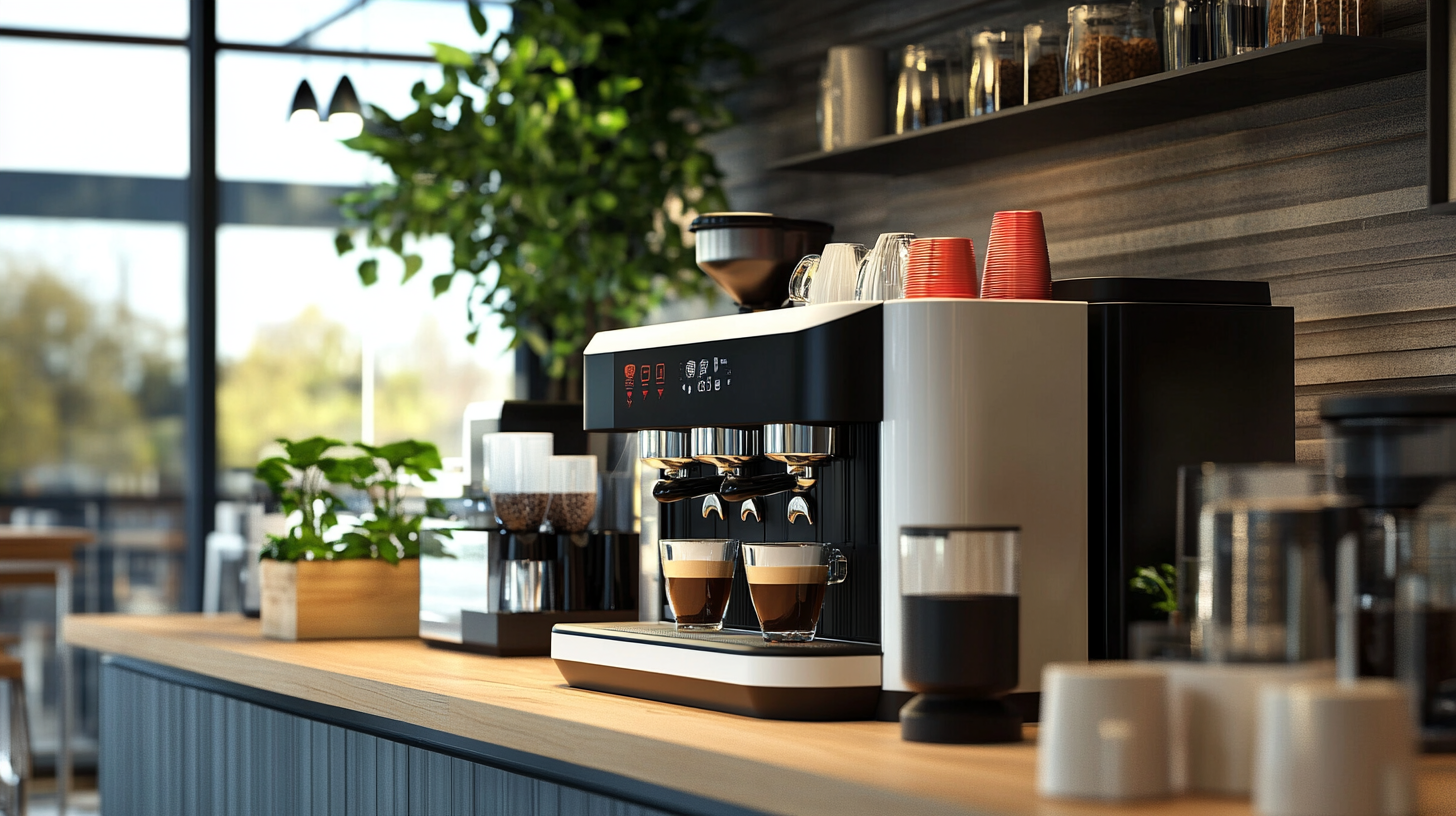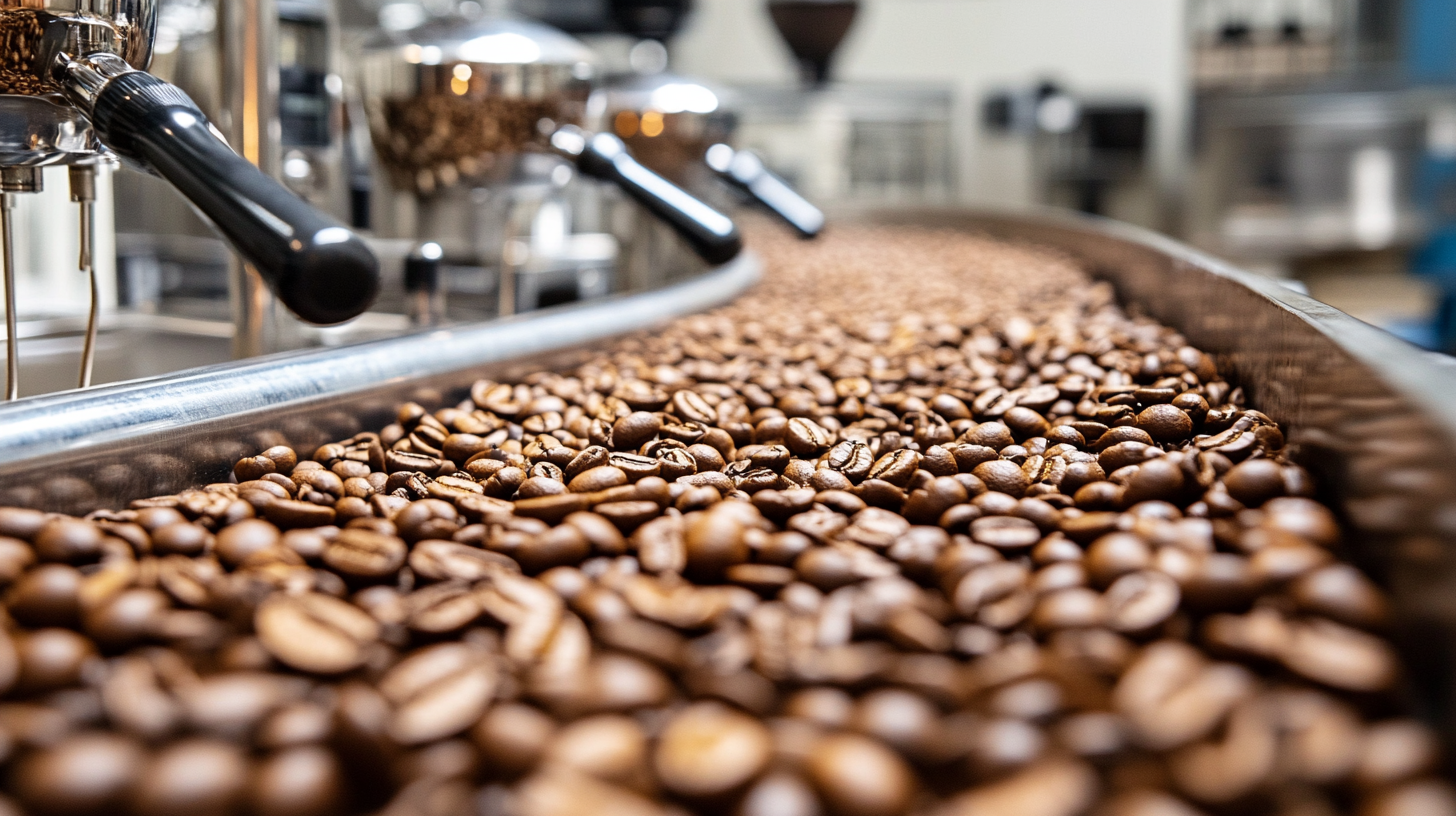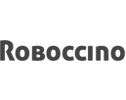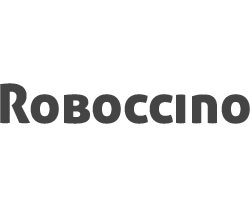Leading the Coffee Machine Lease Market: A Global Manufacturing Perspective
In recent years, the coffee machine lease market has seen significant growth, driven by the increasing demand for high-quality coffee in both commercial and household settings. Industry reports indicate that the global coffee machine rental market is projected to reach USD 1.5 billion by 2026, growing at a CAGR of 7.5% from 2021. This trend highlights a shift not only towards convenience but also towards sustainability, as leasing options allow businesses and consumers to access state-of-the-art equipment without the heavy upfront costs associated with ownership. Furthermore, with coffee consumption expected to rise by 25% over the next decade, the implications for coffee machine lease providers are substantial. By understanding the dynamics of this evolving market, manufacturers can better position themselves to meet the diverse needs of their customers and gain a competitive edge in the global landscape.

Global Trends Shaping the Coffee Machine Lease Industry
The coffee machine lease industry is undergoing significant transformation influenced by various global trends. As the demand for flexibility and cost-effectiveness rises, businesses are increasingly opting for leased coffee machines rather than purchasing them outright. This shift is particularly noticeable as the global self-service coffee machine market is projected to reach $10.34 billion by 2029, with a robust annual growth rate of 9.8%. This trend highlights the increasing consumer preference for convenience, which is reshaping how companies approach their coffee service offerings.
Moreover, the competitive landscape is intensifying as emerging brands enter the market alongside established players. Investment opportunities are abundant, especially with declining consumer spending power prompting retailers to adjust their pricing strategies and product ranges. Reports indicate that as inflationary pressures affect consumer behavior, companies are adapting by providing more affordable leasing options for coffee machines, making it an attractive choice for businesses looking to maintain quality service without incurring high upfront costs. These transformations within the leasing market are indicative of a broader trend towards adaptive business models in response to changing economic conditions.

Innovative Manufacturing Techniques Driving Lease Market Efficiency
The coffee machine lease market is experiencing a transformative shift fueled by innovative manufacturing techniques. According to a recent industry report from IBISWorld, the global coffee machine leasing market is projected to grow at a CAGR of 8.5% from 2023 to 2028, driven by rising demand for high-quality coffee solutions in workplaces and cafés. Manufacturers are increasingly adopting advanced technologies like automation and artificial intelligence in their production processes, which enhances efficiency and reduces lead times. By optimizing the supply chain, companies can now offer more competitive leasing options, catering to an expanding clientele.
Moreover, sustainability has become a key focus in manufacturing practices. The Coffee Equipment Manufacturers Association (CEMA) highlights that 60% of industry players are integrating eco-friendly materials and energy-efficient designs in their machines. This not only appeals to environmentally conscious consumers but also helps reduce operational costs for lease operators. By employing innovative engineering and sustainable practices, manufacturers are setting new standards for efficiency in the coffee machine leasing market, positioning themselves for long-term success. As these trends continue to evolve, companies that embrace these transformative approaches will likely lead in market competitiveness and customer satisfaction.
The Role of Sustainability in Coffee Machine Production and Leasing
Sustainability has become a pivotal concern in the coffee machine production and leasing industry, significantly influencing manufacturing practices and consumer choices. According to a 2022 report by the International Coffee Organization, sustainable practices not only enhance a brand's image but also contribute to long-term cost savings. The transition toward eco-friendly materials and energy-efficient technologies has proven beneficial, with studies indicating that machines designed for durability and recyclability can reduce operational costs by up to 30% over their lifecycle.
When leasing coffee machines, companies are increasingly prioritizing sustainability by choosing vendors who share environmentally responsible practices. For instance, a recent survey revealed that 68% of businesses consider the sustainability credentials of their leasing partners before making decisions. This shift indicates a growing recognition that a sustainable approach can lead to enhanced customer loyalty and better financial performance.
Tip: When selecting a coffee machine for lease, look for options that highlight energy efficiency certifications, as these can significantly lower energy consumption and reduce your carbon footprint. Additionally, consider machines that utilize biodegradable materials, which can support your sustainability goals while maintaining high-quality coffee production. Implementing these practices not only fulfills corporate social responsibility but also appeals to environmentally-conscious consumers.

Consumer Preferences and Their Impact on Leasing Strategies
In today's rapidly evolving consumer landscape, the coffee machine lease market is responding to the shifting preferences influenced by sustainability and convenience. Recent studies indicate that consumers are increasingly inclined to opt for leasing rather than purchasing high-ticket items like coffee machines. A survey revealed that over 60% of consumers consider leasing a more flexible option that aligns with their lifestyle changes, particularly amid the post-pandemic shift towards remote work and home-centric living. With this in mind, manufacturers must adapt their leasing strategies to enhance customer experience and meet these emerging preferences.
**Tips:** To appeal to today’s environmentally conscious consumers, consider offering leasing options that highlight sustainable practices, such as energy-efficient machines or recyclable materials. Additionally, creating tailored leasing packages that align with consumer needs—like flexible terms or maintenance services—can enhance customer satisfaction and foster loyalty.
As the e-commerce boom continues to reshape retail dynamics, the coffee machine lease market must also leverage technology to improve customer engagement. Industry reports suggest that integrating customer feedback mechanisms into leasing platforms can significantly enhance user experience. Companies that adopt a customer-centric approach can drive higher retention rates and increase market share, effectively positioning themselves for success in this competitive landscape.
**Tips:** Utilize data analytics to better understand consumer preferences and anticipate future trends. Engaging with customers through surveys or social media channels can provide insights to refine leasing strategies, ensuring they remain relevant and effective.
Competitive Analysis: Key Players in the Coffee Machine Leasing Market
The coffee machine leasing market is experiencing a notable transformation, spurred by a projected growth trajectory that envisions the market reaching substantial value by 2033. According to recent market reports, the coffee machine sector is expected to expand at a compound annual growth rate (CAGR) of 5.0% from 2026 to 2033, which reflects a robust demand for both leased and owned coffee machines across various market segments. This growth signifies not only increasing consumer preferences for quality coffee but also the rising popularity of leasing models among businesses looking to enhance their service offerings without the heavy upfront investment of purchasing equipment.
Key players in the coffee machine leasing market are thus positioned strategically to capitalize on this trend. A competitive analysis reveals that these companies are focusing on innovation, cost-effective leasing solutions, and exceptional customer service to differentiate themselves from the competition. Additionally, the expansion of the coffee culture globally, coupled with emerging trends in equipment advancement, signifies a shift in how businesses approach coffee machines. This evolving landscape presents ample opportunities for both large manufacturers and niche providers to cater to diverse consumer needs while securing a stake in this lucrative market.

